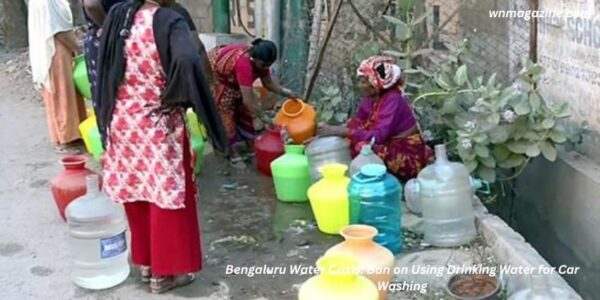Amidst a severe water crisis in Bengaluru, the Bengaluru Water Supply and Sewerage Board (BWSSB) issued an order on Friday, prohibiting the use of drinking water for non-essential purposes such as car washing, gardening, building, and recreational activities like water fountains.
Offenders will face a Rs 5,000 fine, with an additional Rs 500 increment for each subsequent violation. The order, based on Sections 33 and 34 of the Bengaluru Water Supply and Sewerage Act, 1964, aims to address the pressing water shortage affecting both rural and urban areas.
Also Read: well health tips in hindi wellhealth
To address the skyrocketing prices of private water tankers during the crisis, the Karnataka government, on Thursday, imposed price caps. Previously, a 6,000-liter water tanker cost between Rs 450 and Rs 600, but prices surged to Rs 2000-3000 amid the crisis. The government’s intervention sets a fixed price to alleviate this issue.
With 14 million residents in Bengaluru Water , ensuring drinking water for the population is crucial. The order emphasizes the need to conserve water as summer intensifies and groundwater resources deplete. The BWSSB has set up a hotline (1916) for water-related queries and urges the public to report violations.
Ram Prasath Manohar, BWSSB chairman, highlighted efforts to address the crisis, stating that areas supplied with Kaveri water have sufficient supply, but surrounding regions face delays. Currently, the BWSSB provides 1,470 MLD to meet the daily demand of 1,450 MLD in Bengaluru City.
Also Read: wellhealthorganic vitamin b12
Responding to the crisis, Bengaluru Water district administration, in collaboration with the BWSSB and BBMP, implemented new guidelines for private water tanker operators. Deputy Commissioner KA Dayananda announced these measures to control water tanker costs and ensure a more organized response to the ongoing water scarcity.
